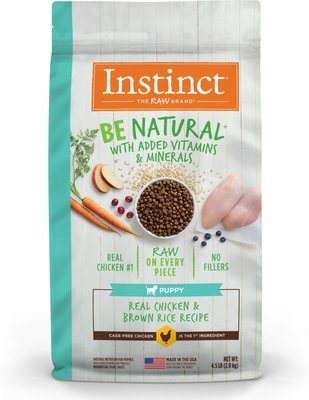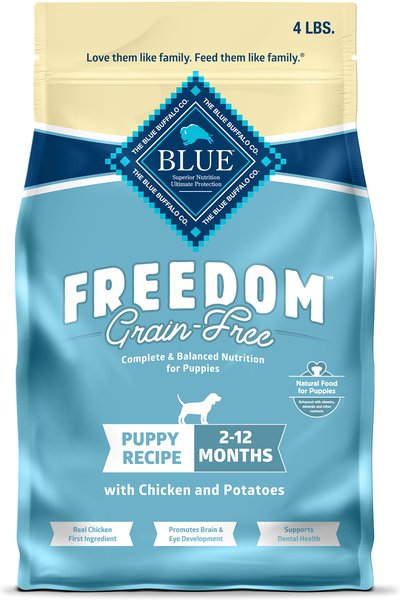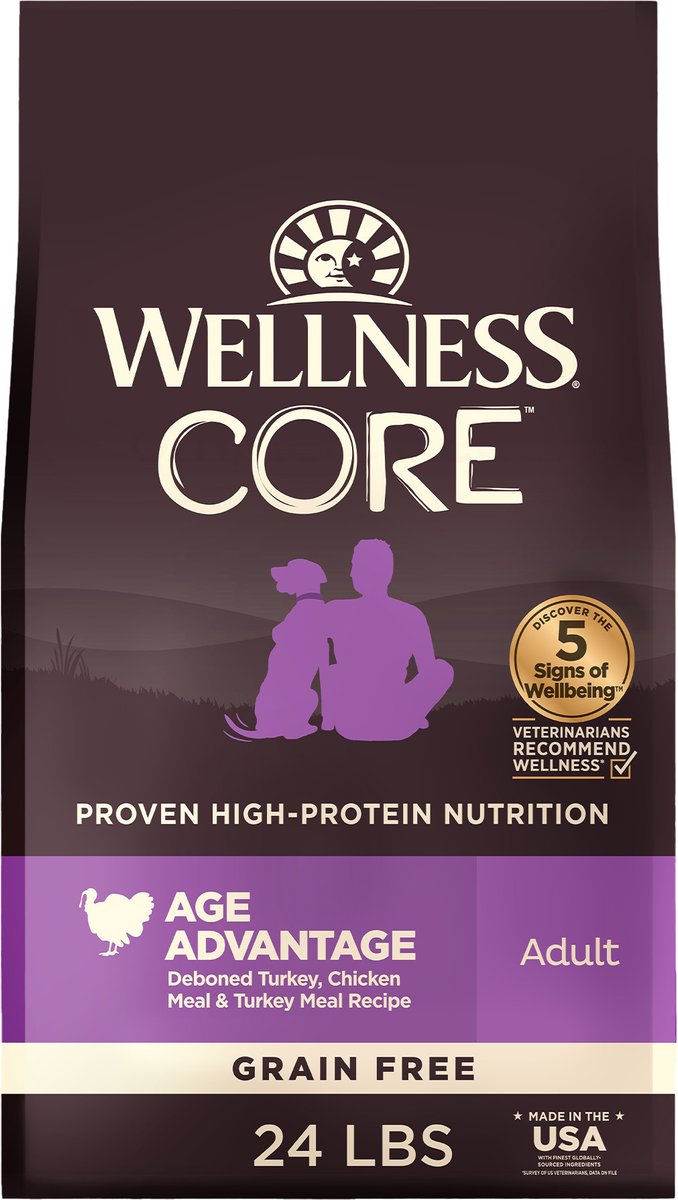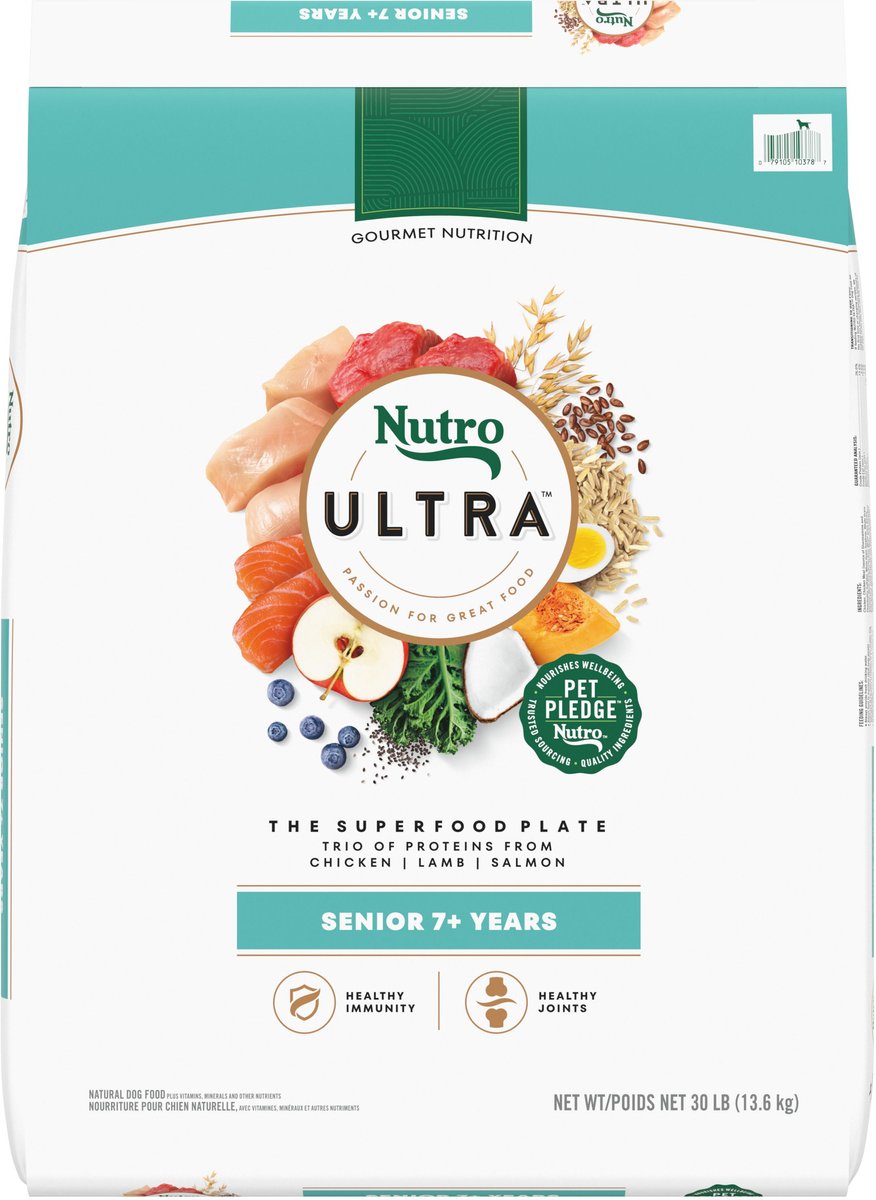What's the Best Dog Food for Collies?

Collies are one of the most beautiful and recognizable dog breeds, but how do you keep them healthy with the best nutrition possible? We’ll share details of their breed traits, health issues to look out for, and what foods will help them thrive.
Jump to section
Breed Info
Breed Group:Herding | AKC Collie Profile
Ideal Weight:Female Adult: 51 to 64 pounds
Male Adult: 59 to 76 pounds
Exercise Need:20 to 40 minutes per day
Breed Summary
Collies have long been a famous and easily recognizable dog breed, thanks to pop culture references like Lassie. Collies come in two varieties, the familiar long rough coat and a smooth, sleeker coat. Colors for both varieties can include sable and white, tricolor, blue merle, or all white. They have distinctive wedge-shaped heads, highly mobile ears, and beautiful almond-shaped eyes that allow them to show many different facial expressions.
Collies are athletic herding dogs with tons of energy, so they need regular exercise. They are excellent with children and highly trainable, loyal, and intelligent. Collies can weigh up to 75 pounds and they need space to run, so a house with a yard or a country setting is usually best for this breed. Collies also excel in pursuits like agility training and, of course, actual herding of stock animals.
Physical Traits
Beautiful flowing coats, wedge-shaped head, athletic build
Personality Traits
Loyal, intelligent, easy to train
Health Considerations
-
Many of the health problems that Collies face are genetic in nature, such as seizures, eye disorders, grey Collies syndrome, and hip dysplasia. Collies can suffer from central progressive retinal atrophy (pra) which essentially erodes the layers of the retina, causing a dog to lose its sight over time, or from Collies eye anomaly, where the eye blood vessels do not develop properly after a Collie is born, leaving it with diminished sight as as adult. Neither of these conditions are curable since they are genetic, although there are steps you can take to help alleviate stress and symptoms.
while there’s not much to do about genetic conditions in dogs except choose a reputable breeder, there are some health issues that you can treat: -
Bloat
Collies can unfortunately suffer from bloat, where their stomachs fill with air, cutting off circulation between their front and back halves. This can result in shock and can be fatal. To minimize risk, try the following recommendations for your Collie:
Recommendations:
Avoid elevated feeding・ Avoid feeding just one meal per day・ Encourage slow eating・ Feed large bites or kibble・ Feed probiotics and prebiotic fibers・ Restrict activity after eating -
Hip Dysplasia
Hip dysplasia can also be an issue for Collies, and although it is genetic in nature, it can be managed with proper diet and care. We look for foods that contain:
Recommendations:
Antioxidants・ Chondroitin・ Glucosamine・ Green Mussel・ Methylsulfonymethane・ Omega-3 from Fish Oil・ Taurine・ Turmeric・ Vitamin E -
Osteochondritis Dissecans
Collies can also face Osteochondritis Dissecans, which is when the dog’s bones grow so fast that its cartilage can’t keep up. This requires surgery to correct, but this can generally be prevented by allowing Collies puppies to grow at a natural rate by not overfeeding or supplementing them.
Get a tailored nutrition profile for your dog
Our free nutritional assessment tool provides individualized recommendations based on your dog's breed characteristics, age, weight, body condition score, and activity level. It only takes 30 seconds to receive science-based insights to support your dog's lifelong health.
Are Fresh Food Diets Good for Collies?
Only if they’re properly balanced.
Many well-intentioned Collies parents spend a lot of time preparing meals at home, but health benefits are lost if meals aren’t properly portioned and balanced with all the nutrients dogs need. Recently, a few companies have done an excellent job ensuring accurate portions and nutrient balance by delivering pre-prepped fresh meals customized to the size and needs of your dog. Farmer’s Dog, Ollie and Nom Nom have each been approved by our nutrition team as delivering truly quality and well-balanced meals. They can be a little expensive (usually 3-4x more per day than kibble), but many find the added health benefits worth the cost. They do offer discounts to new customers, though, if you’d like to try one out.
Pros and Cons of Fresh Food Diets
✓ Diets balanced by Nutritionists・ ✓ Customized portions for weight control・ ✓ Superior digestive and immune health ・✕ More expensive than standard dog food
Foods We Recommend for Collies Puppies
How long do Colliess need puppy food?
Until they're 12 to 16 months old.
Collies are very focused on growing, and how we feed them should help them do just that. Since they have so much growing to do, they need higher amounts of nutrients than adult dogs, especially proteins, fats, carbohydrates, vitamins, minerals and — don’t forget — water. It’s still important to not overfeed puppies, so make sure to portion food and keep treats to no more than 10% of their caloric intake. Since balance is so important, we recommend that your young Collies is eating food that is made just for puppies from a reputable brand.
Find the best nutritional start for your puppy
Our recommendation tool evaluates your puppy’s breed, age, growth stage, lifestyle, and health needs to identify a scientifically appropriate diet from over 10,000 options. Obtain personalized guidance to help support healthy development and lifelong wellness.
Foods We Recommend for Collies Adults
When should Collies start transitioning to adult food?
When they're 12 to 16 months old
From a nutrition standpoint, Collies become adults once they reach about 90% of their expected weight. Once adults, our two key nutrition goals are balance and maintenance. We want balance because a dog’s body is responsible for a lot of things, like digestion, fighting infection, keeping muscles strong, and chasing squirrels. These are all important tasks, so we want to make sure each body function gets its share of nutrients. We also need to maintain a healthy weight. Underfed dogs are at risk for malnourishment, and overfed dogs can become obese — both of which lead to even worse problems for a Collie
Find the optimal nutrition plan for your adult dog
Our assessment analyzes your dog’s breed, age, lifestyle, and health considerations to recommend a scientifically selected diet from over 10,000 options. Personalized insights to help your dog thrive through adulthood.
Foods We Recommend for Collies Seniors
When should Collies start transitioning to senior food?
All dogs can age differently, but medium dogs like Collies can start to benefit from senior food around 7 to 8 years old
Ever watch kids running around the playground and wish you had that energy again? Yeah. Dogs get there, too. The metabolic processes in senior Collies slow down as they age, which often means they aren’t needing quite as many calories as they did in their prime. Smart dog food companies have formulated senior diets to ease up on calories but still help them feel full and give them adequate maintenance protein. Still, like humans, everybody is different. Sometimes older dogs need just as many calories, or more, depending on how their bodies progress. So keep a close eye on their body condition, and look for dog foods made for seniors.
Support your senior dog's health with targeted nutrition
Our assessment analyzes your dog’s breed, age, and health considerations to recommend a science-based diet from over 10,000 options. Help maintain mobility, cognitive health, and quality of life.
Affiliate Disclosure:
We do not accept money to recommend pet foods. However, we do receive referral fees from online retailers (such as Chewy or Amazon) on qualifying purchases. Our recommendations are neutral, and diet recommendations are made without considering whether we will receive a referral fee.















